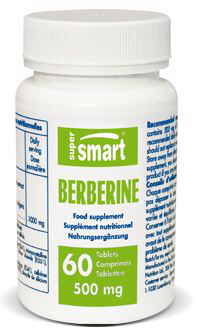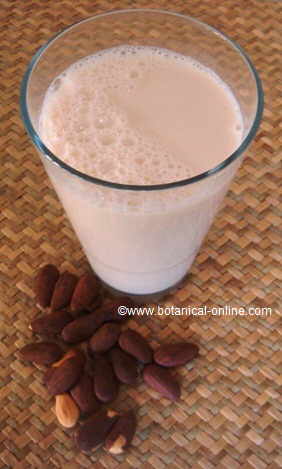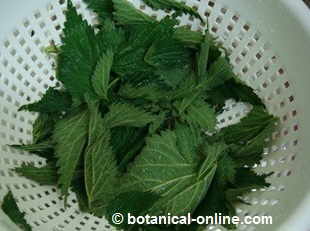Contents
- 1 Berberine to lower cholesterol
- 1.1 What is berberine and what is it used for?
- 1.2 Where is this component extracted from?
- 1.3 Benefits of berberine for cholesterol health and lowering cholesterol
- 1.4 Berberine, the natural statin
- 1.5 How does berberine work to lower cholesterol?
- 1.6 Berberine to lower blood sugar
- 1.7 Berberine to lower cholesterol levels
- 1.8 Berberine for familial hypercholesterolemia
- 1.9 Scientific studies on berberine for cholesterol
- 1.10 Who is recommended to take berberine?
- 1.11 How to take berberine to lower cholesterol and triglycerides
- 1.12 Contraindications of berberine supplements
Berberine to lower cholesterol
What is berberine and what is it used for?
Berberine is a natural compound potentially beneficial for high cholesterol and triglycerides. It is a plant-based “natural supplement-medicine” that has become the best alternative for patients intolerant to statins or who refuse treatment.

Chemically, it is an alkaloid that is metabolized in the liver and eliminated primarily through bile. Therefore, its target organ is the liver.
Where is this component extracted from?
This component is found in the roots and stems of some medicinal plants such as barberry (Berberis vulgaris), a thorny shrub of European origin, although other plants rich in berberine exist on other continents.
Scientists began to focus on berberine because Traditional Chinese Medicine successfully uses these natural remedies to treat cholesterol. In fact, most studies on this subject have been conducted in Asian populations, although there are currently modern studies in Western populations.
Benefits of berberine for cholesterol health and lowering cholesterol
Berberine supplements have been researched and shown to be beneficial for lowering cholesterol, as well as other metabolic disorders related to obesity, polycystic ovaries, and diabetes. It also has a neuroprotective effect.
- It has the same effect as statins, without their adverse effects
- Reduces familial hypercholesterolemia
- Reduces triglyceride levels
- Reduces total cholesterol and “bad” or LDL cholesterol
- Significantly reduces blood sugar (glycemia)
- Improves glycated hemoglobin (HbA1c) levels, indicating good diabetes control
- Rebalances circulating insulin levels, preventing excess insulin
- Natural anti-inflammatory and antioxidant
- Has antiarrhythmic properties, especially in atrial fibrillation. Protects the heart wall
- Neuroprotective
Berberine, the natural statin
Berberine lowers cholesterol and triglycerides and is a suitable medical option for patients who are intolerant to statins or who refuse treatment.

Scientific studies have shown that this alkaloid has the same effects as cholesterol-lowering drugs, which are statins, with the advantage of lacking their adverse effects. It reduces endogenous cholesterol synthesis, that is, it prevents the body from producing more cholesterol. It is suitable for people with high cholesterol that does not decrease with diet and exercise, and for people with familial hypercholesterolemia.
How does berberine work to lower cholesterol?
For more technical details, we can specify that berberine acts by inducing the activation of AMPK, which in turn inactivates the liver enzyme HMG-CoA reductase. This enzyme is the one that produces endogenous cholesterol.
Knowing that it acts on this enzyme, we can also deduce that berberine to lower cholesterol should be taken at night for greatest effect, for example 30 minutes before dinner (HMG-CoA reductase has its peak activity at night, which is when the body produces cholesterol).
Furthermore, berberine has been observed to increase the expression and half-life of the low-density lipoprotein receptor (LDL-R) on the surface of hepatocytes and increase the transcriptional activity of the LDL-R promoter. All of this translates into various ways for treating hypercholesterolemia, aiming to reduce triglycerides and cholesterol.
Berberine to lower blood sugar
Many people with cholesterol problems end up developing sugar problems. Berberine-containing plants have traditionally been used as remedies to improve digestion. This is explained by its role in controlling postprandial glycemia (blood sugar levels after eating), by preventing excessively high blood sugar levels that would cause drowsiness and malaise.
Berberine is one of the most promising supplements for the treatment of diabetes because it has been shown to be as effective as antidiabetic drugs. Several studies have compared berberine’s effectiveness in lowering blood sugar and have found it to be as effective as metformin, one of the most commonly used oral antidiabetic drugs for controlling diabetes.
Berberine’s effectiveness in diabetes is such that many professionals consider it one of the supplements of choice for the treatment of these conditions. However, it’s also worth mentioning that this supplement has few but important contraindications that you should be aware of.
Berberine to lower cholesterol levels
Scientific studies have also shown that berberine offers benefits in controlling high cholesterol levels by preventing the formation of foam cells, which are the main cause of atheromatous plaque (atherosclerosis).
Berberine for familial hypercholesterolemia
Berberine has been shown to act like the latest-generation drugs being investigated for the treatment of familial hypercholesterolemia. It is a natural PCSK9 inhibitor, acting similarly to the novel drugs of the monoclonal antibody group (such as evolocumab).
In more technical terms, berberine works by reducing a protein called PCSK9 (protein convertase subtilisin/kexin type 9) in vitro, which promotes lysosomal degradation of LDL-Rs. By inhibiting PCSK9, it increases the availability of the LDL receptor (LDL-R), resulting in a reduction in cholesterol levels.
Scientific studies on berberine for cholesterol
A 2013 review of berberine for cholesterol-lowering published by Dong et al., which included 11 randomized controlled trials and a total of 874 patients with hypercholesterolemia, diabetes, or both conditions, showed that berberine significantly lowered total cholesterol, “bad” LDL cholesterol, and triglyceride levels (an average decrease of 23.5 mg/dl, 25.1 mg/dL, and 43.8 mg/dL, respectively). In addition, a slight increase in the levels of “good” cholesterol or HDL is observed. The doses of berberine used in these studies ranged from 500 mg to 1,500 mg daily.
In 2013, Derosa et al. presented a clinical trial involving 141 individuals with hypercholesterolemia and low cardiovascular risk who were given 500 mg of berberine supplements twice daily for 3 months. The results again confirmed that berberine is capable of reducing total cholesterol, LDL cholesterol, and triglycerides (a reduction of 11.6%, 16.4%, and 21.2%, respectively).
In one of the most recent studies (2017) by M. Pirro, the properties of berberine to lower cholesterol and triglyceride levels are confirmed again.
For further information on this topic and other references, a systematic review published in 2017, “Efficacy of Berberine Alone and in Combination for the Treatment of Hyperlipidemia,” is very interesting. Data from studies with berberine alone, berberine + other natural nutraceutical supplements, and berberine + statins were analyzed. In all cases, berberine was found to improve cholesterol levels.
Who is recommended to take berberine?
Berberine is recommended for all those people with high cholesterol, high blood sugar, high glycosylated hemoglobin, etc., and for those beginning to experience insulin resistance problems, such as polycystic ovaries, overweight, or obesity.
It is very suitable for people with heart disease or high cardiovascular risk, although in that case, once medication is taken, berberine can be equally beneficial when taking medication. However, in these cases, it will be advisable to consult with the doctor about the appropriateness of the treatment to avoid incompatibilities with the medication.
It is a suitable medical option for patients who are intolerant to statins or who refuse treatment.
How to take berberine to lower cholesterol and triglycerides
In scientific studies, doses of 500 mg of berberine are used, administered 30 minutes before main meals. In some cases, higher doses of 0.8 g (800 mg) or even 1.5 g (1,500 mg) of berberine have been used 30 minutes before meals.
As with statins, some experts recommend taking coenzyme Q10 during berberine treatment, as it could decrease Q10 levels in the body.
Contraindications of berberine supplements
Berberine has few contraindications, but they are important, as in some cases it can have serious consequences. The most important, especially in diabetes, is that it should not be combined with medications (antibiotics, antidiabetics, depression, etc.) as adverse effects may occur (cardiac toxicity in the case of certain antibiotics, hypoglycemia in the case of antidiabetics, loss of effect of antidepressants, etc.). Women should also not take it during pregnancy.
![]() More information on berberine
More information on berberine








